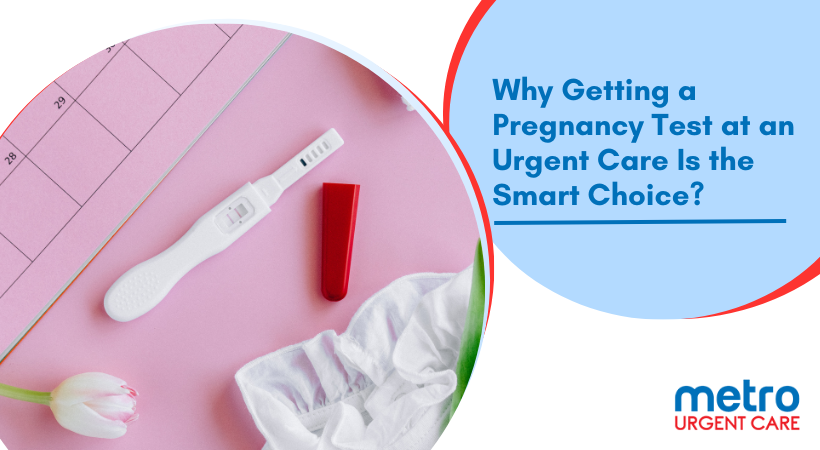


Urgent care involves providing medical services for immediate, non-life-threatening healthcare needs. These facilities are designed to provide timely and convenient medical attention for conditions that require immediate attention but do not require a visit to the emergency room. According to the Centers for Disease Control and Prevention (CDC), 32.3% of women had one or more visits to an urgent care center in the past 12 months.
Pregnancy testing in urgent care plays a crucial role in providing timely and accessible healthcare for women who suspect they may be pregnant. Timely pregnancy testing can affect both the health and well-being of the pregnant woman and the overall management of reproductive health. It enables early intervention, access to appropriate care, and informed decision-making, promoting a healthy pregnancy and a positive maternal and fetal outcome.
In this blog, you will learn more about pregnancy testing at urgent care.
When to take a pregnancy test can significantly impact its accuracy. But it's recommended to get a pregnancy test as soon as possible. Here are some general guidelines on when to take a pregnancy test:
The most common and reliable time to take a pregnancy test is after you have missed your menstrual period. Most over-the-counter pregnancy tests are designed to be effective around the time of a missed period that can lead to pregnancy symptoms.
If you suspect you may be pregnant and want to test before your missed period, it's generally advisable to wait at least one week after conception. Conception usually occurs around the time of ovulation, which is approximately two weeks before your expected period.
For the highest concentration of the pregnancy hormone hCG (human chorionic gonadotropin), which the test detects, it's recommended to use in the first-morning urine. This is because hCG levels are typically more concentrated in the morning.
Always follow the specific instructions from the pregnancy test kit. Different tests may have different sensitivities and instructions, and following them correctly can affect the accuracy of the results.
Some pregnancy tests are more sensitive than others, detecting lower hCG levels. If you're testing early, consider using a test with higher sensitivity, but remember that even the most sensitive tests may only be accurate a few days before your expected period.
There are two main types of pregnancy tests: urine tests and blood tests. Both types detect the presence of a hormone called human chorionic gonadotropin (hCG), produced by the developing placenta during pregnancy. Here are the details of each type:
While it is not a traditional pregnancy test, a transvaginal ultrasound can confirm the presence of a gestational sac, heartbeat, and other signs of pregnancy. This method is typically used in medical settings and is more common when a woman has symptoms such as pain or bleeding.
Getting early pregnancy tests at an urgent care clinic offers several benefits, providing a convenient and accessible option for individuals seeking timely information about their pregnancy status. Here are some benefits of urgent care pregnancy tests:
Timely pregnancy testing is a critical component of reproductive healthcare, contributing to the overall well-being of both the pregnant woman and the developing fetus. So, visiting an urgent care is ideal for someone who wishes to know if they are pregnant. Urgent care clinics play a crucial role in addressing immediate concerns and facilitating timely access to healthcare resources for women during the early stages of pregnancy.
Visit Metro Urgent Care if you are looking for urgent care that offers prompt pregnancy tests in Chicago, IL. Visit our convenient locations at 5406 W. Fullerton Ave. (773) 341-2897 and 3235 W. Montrose Ave. (773) 669-0005, our expert team is ready to provide you with the best care and support. Contact us for more information and learn more about our services.